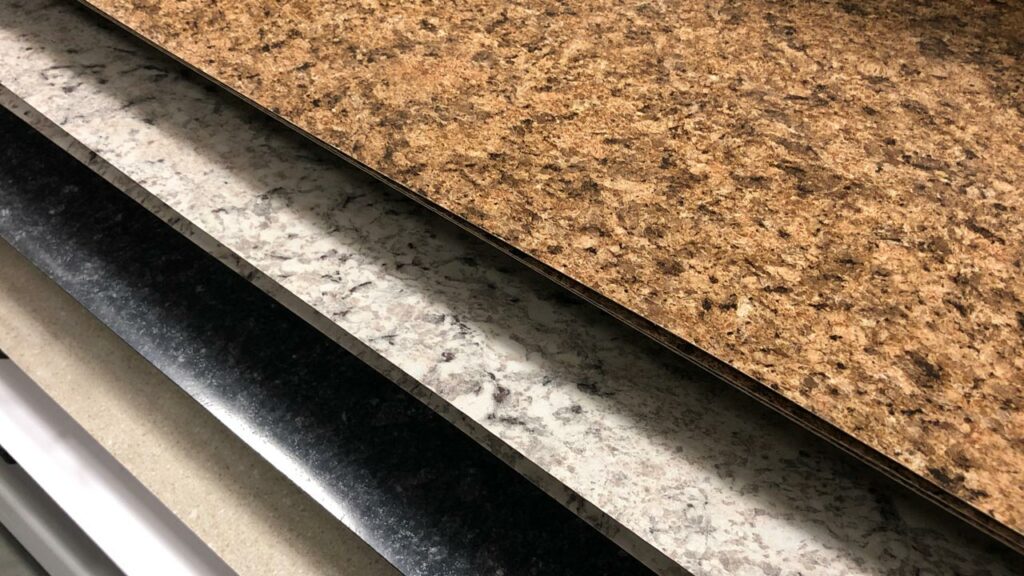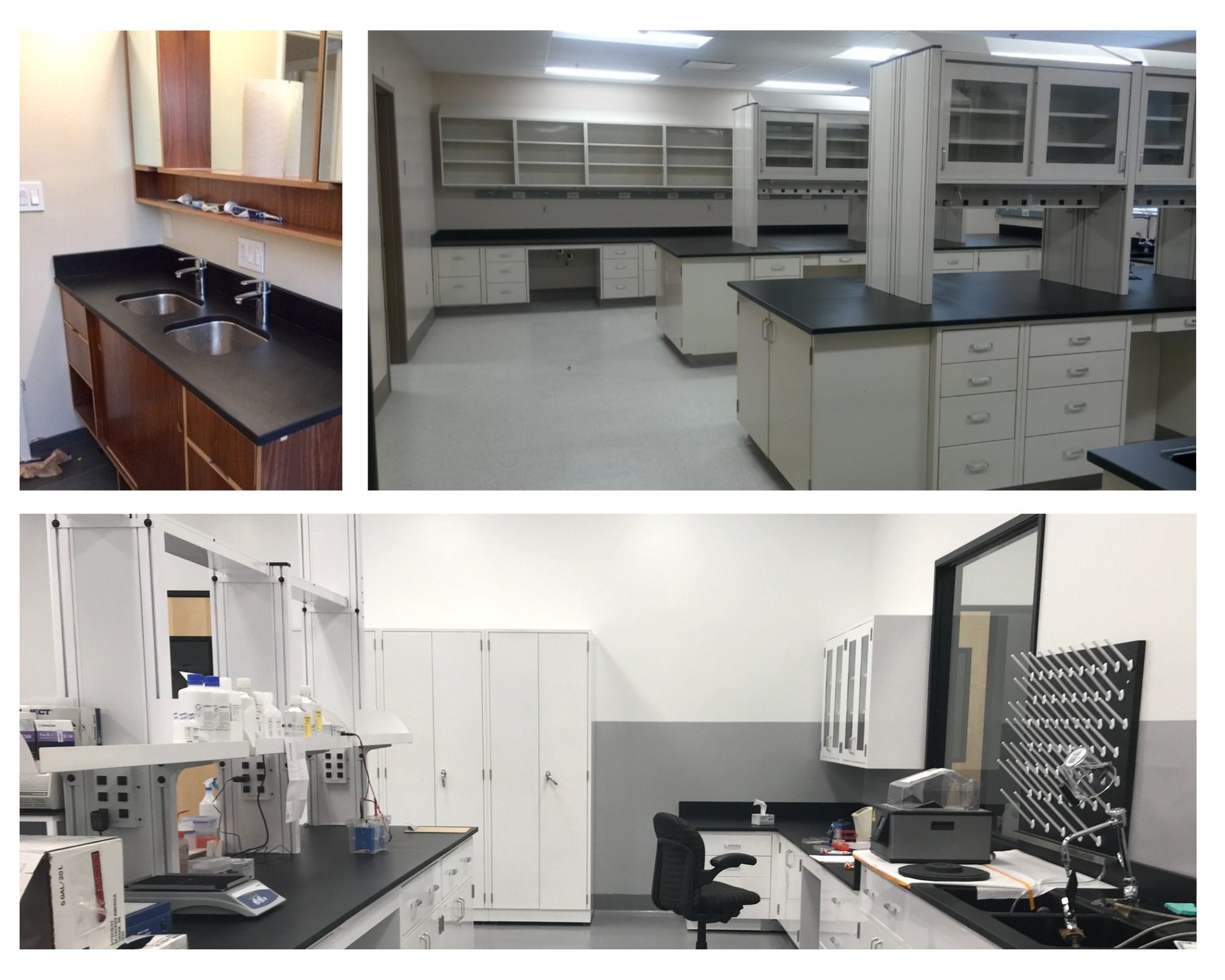When it comes to countertops, they provide a lot of support in terms of durability and beauty. There are many options for countertops, and any length can be manufactured, with a flawless appearance. Depending on the style and color that you choose, you have many options to choose from like a phenolic resin countertop.
A safe, sturdy, and efficient workspace is provided by a good workbench or table. Despite their common purpose, some laboratory work surfaces are better tailored to most laboratories and sterilization tasks.
What to Consider Before Buying a Countertop?
As for materials, colors, and patterns, there are more countertop choices available to you than ever before. There has been a migration of materials including marble, stainless steel, granite, limestone, and even concrete.
It is important to keep in mind that some counters don’t see the same wear and tear as others, so you still need to look into materials that are more likely to resist scratches and tougher stains.
Set a Budget for the Project
In order for our fabricators to assist you better and provide you with recommendations based on your project’s needs, it is important to know the details and full scope of what you want.
Don’t forget to budget a little more than expected, particularly if granite is involved as labor costs will be higher.
Taking Into Account Several Samples
You can’t visualize the material in your kitchen, workspace, or laboratory environments with small samples. Taking large samples of the materials, even if you have to pay for them, is a good idea if you want to experiment with online design tools.
Visiting the stone yard is a good idea if you are contemplating choosing this material. Colors and textures can vary widely even within a slab, so reserve the slab if this is something you are interested in.
Keep Track of Measurements
Make accuracy the responsibility of the fabricator, who will take the final measurements. Make sure the contract and estimate specify the dimension and finish of the material, as well as the costs for other treatments, and removing the old counters.
Choose a Countertop Edge
The fabricator will ask for your preferred edge style once you’ve decided between granite, quartz, and marble, which is something that first-time buyers don’t always consider.
The current trend is for square edges to be the norm, and decorative edges such as ogees, bevels, and bullnoses to be more expensive.
Choosing the Type of Countertop
It is important to choose the right material. For many years, granite countertops dominated the market, but quartz countertops are now overtaking it as the most popular choice.
The ultimate goal is to find the right countertop material that fits your personal style and fits into your kitchen or laboratory environment. Find the right countertop and budget by learning about different types of countertops.
Quartz
Any busy kitchen will benefit from quartz countertops since they require little maintenance. With its nonporous, stain-resistant, and easy-to-clean properties, it is made from the strongest natural mineral on earth. It won’t need sealing, conditioning, or polishing.
A wide range of vibrant colors and exceptional styles are available, so it is the perfect choice for areas that receive a lot of traffic.
Granite
In the kitchen, granite is a popular choice because of its resistance to heat and scratches. Food prep surfaces made from concrete are stain and bacteria-resistant when properly sealed. The surface won’t be damaged by knives or boiling water.
Laminate
Over a composition wood base, laminates are layers of paper or fabric saturated with resin. Suitable for areas that get a lot of traffic but do not get abused. Decorative edges can hide seams in laminates, but some laminates have seams visible.
It’s also possible to form laminate sheets and bend them using high heat, resulting in a seamless appearance.
Ceramic Tile
There are many colors and patterns available when it comes to ceramic tiles. This material blends well with other materials and looks great on backsplashes and island tops. There is no need for a lot of expertise to install it, and it is relatively inexpensive. This material can withstand high temperatures, which makes it suitable for use around stoves.
Phenolic Resin
Made of fibers saturated in resin, like kraft paper, are compacted layer by layer into phenolic resin to produce a super-solid synthetic polymer or phenolic compact. In order to create a solid phenolic resin countertop, layers of resin are stacked and then cured with a high-pressure process.
This makes it easy to maintain clean phenolic resin countertops, and they are durable, flexible, hygienic, have chemical resistance, and easy to maintain.
When water and corrosion resistance is required, phenolic resin countertops are an excellent alternative to epoxy resin countertops. Several smaller companies benefit from phenolic resin countertop because of its affordability, versatility, and ease of customization and delivery.
There are many people who consider epoxy resin to be more expensive than phenolic countertops, but phenolic resin lacks the toughness, chemical resistance, and longevity of epoxy resin.
The use of phenolic resin laboratory countertops across a variety of industries has remained popular due to its several properties and its ability to handle medium-duty applications.
Epoxy Resin
Materials and fillers are mixed together to form epoxy resin. Additional strength can be achieved by adding fillers like silica, metal, and glass to epoxy resin as well as the resin component.
By casting thin layers of epoxy resin one after another and curing each layer with a thermoset process, the laboratory countertop material is resistant to continuous heat exposure. Epoxy resin countertops can be made in virtually any size or thickness by layering and curing layers of fillers to meet the needs of individual customers.
In industrial facilities and healthcare facilities with high traffic, epoxy resin is commonly used because of its incredible durability.
Solid Surfacing
For affordable and practical countertops, a solid surface is a way to go. A solid surface countertop offers less frequent cleaning and has ba since it is made from nonporous acrylic.
Heat does not penetrate solid surface countertops as it has heat resistance. Additionally, impacts, scratches, and small cuts can be repaired with a buffing machine. Under-mounted sinks are ideal for the material because it is waterproof.
Make Efforts to Consider Costs
Take advantage of sales and experiment with mixing materials, selecting the more valuable material in central areas such as an island surrounded by less costly materials.
It’s stylish to have beveled or bull-nosed edges, but they may be more expensive. There is no extra cost for round edges over squared edges, and they are safer than squared edges.
If you’re interested in learning more about a phenolic resin countertop, we can help you! Email us at sales@labtechsupplyco.com or call us at 800-476-5228 at ResinTops.net today!
Frequently Asked Questions
How do I choose the right material for my countertop?
Choosing the right material for your countertop depends on a variety of factors. Consider your budget, the room’s usage, aesthetics, and your tolerance for maintenance. For instance, if you’re looking for a kitchen countertop, materials like quartz, granite, and solid surface are popular choices because of their durability and ease of cleaning. If you’re choosing for a lab, epoxy resin is a great choice because of its resistance to chemicals and heat.
What is considered the best countertop?
The “best” countertop largely depends on your specific needs and preferences. However, quartz countertops are often considered among the best because they’re non-porous, extremely durable, and come in a wide variety of designs. For laboratory environments, epoxy resin countertops are highly recommended due to their chemical and heat resistance.
What type of countertop is most durable?
Quartz and granite are among the most durable materials for countertops in a kitchen or bathroom setting. They are resistant to heat, scratches, and stains. For laboratories, epoxy resin is the most durable, being highly resistant to a wide range of chemicals, heat, and impact. It would also help to learn more about the pros and cons of epoxy resin countertops.
Are thicker countertops better?
Thicker countertops often provide a more robust and high-end look, but thickness doesn’t always equate to durability. The material and quality of installation are equally, if not more, important. In some cases, a thicker countertop may even be more prone to cracking if the material is brittle.
Which countertop is easiest to maintain?
Quartz and solid surface countertops are considered to be some of the easiest to maintain. They are non-porous, meaning they don’t stain easily and don’t require periodic sealing like natural stone. For laboratory environments, epoxy resin countertops are easy to maintain due to their resistance to a wide range of substances.
How much should I budget for new countertops?
The cost of new countertops can vary greatly depending on the material, size, and complexity of the installation. For lab countertops, costs may vary based on specific needs, the type of material used, and the size of the workspace.
What is the best time of year to buy kitchen countertops?
There isn’t necessarily a “best” time of year to buy countertops, as sales can occur throughout the year. However, home improvement stores often have sales during major holiday weekends or at the end of the financial year. It’s also worth noting that the installation process may be faster during off-peak periods when contractors are less busy.


